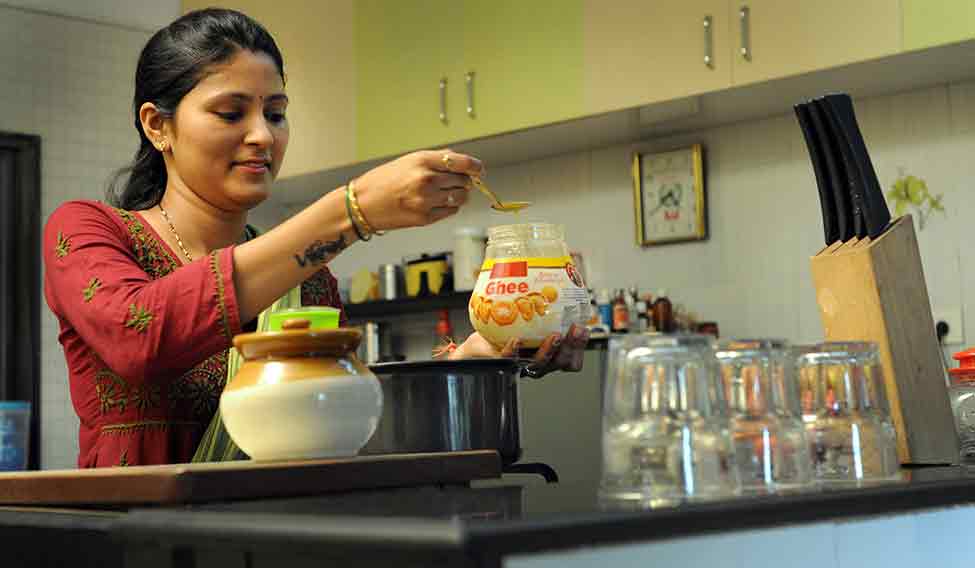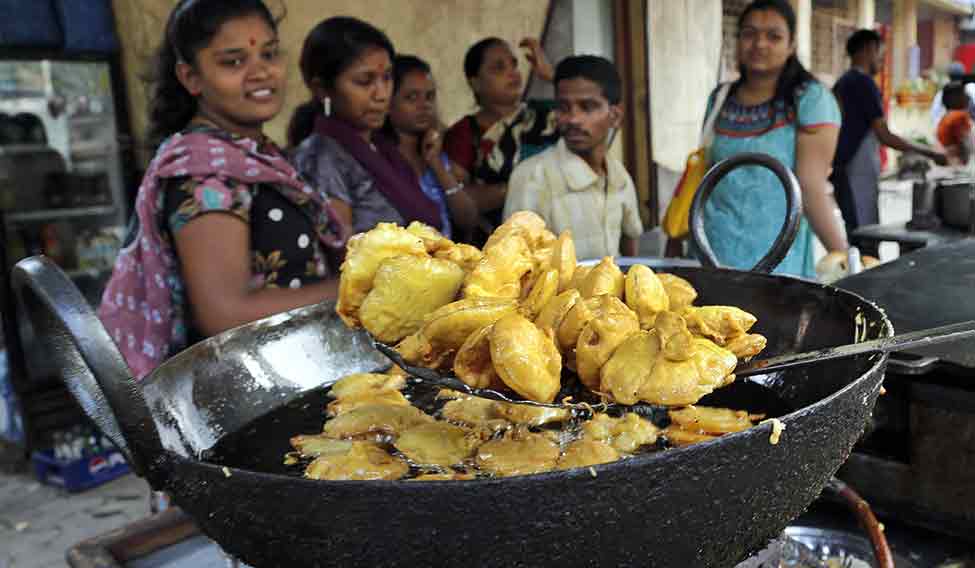In the good old days, when the world was still innocent, ghee occupied the pride of the place in most Indian kitchens. It was an expensive commodity and its nutritional goodness was so venerated that we didn’t let even a smear of ghee go waste, extracting vestiges with a crooked finger, as per a common Hindi saying.
Then, suddenly, cholesterol entered the scene as villain, and ghee was accused of inviting the evil C into our systems. We were told the cholesterol in ghee clogged our arteries and caused early death. Grannies, who’d known ghee as saviour and not Yamadev, refused to believe new-fangled research and quietly let drop a dollop into their grandkid’s dal, evoking the ire of educated daughters-in-law. Granny was right after all it seems, because as unpredictably as it became villain, ghee has been resurrected, as, yes, you heard right, health food.
Singer Adnan Sami says it helped him lose weight, American celebrities import ghee to keep themselves in shape and new research even says the conjugated linolenic acid in ghee is a cancer fighter.
Meanwhile, the outlook about cholesterol has also changed: it was first classified into good and bad types, and now, they say, even bad cholesterol is good.
Ghee is not the only food whose fortunes have changed in recent times. Salt is one of the white villains (the other two being maida and sugar) in the dietary chronicles. It causes blood pressure to rise, no doubt, but has everyone forgotten it was the vehicle to introduce iodine to deprived Indian bodies, thus preventing cretinism and goitre? Millets are the nouveau nawabs, having moved from really humble origins, and been laughed at for their coarseness to take up residence on shelves of pricey gourmet and health stores.
Our daily bread (now even that’s a killer; according to the Centre for Science and Environment, it harbours carcinogens) and all that accompanies it, has a rather unpredictable placing on the dining table. “Food fetishism is on the rise across the globe and the research that goes into what we eat is phenomenal,’’ says Vidhya R., nutrition head at Cloudnine hospitals, Bengaluru. “Principles keep changing, and so does research. New research is always throwing up more information, so this area is dynamic.’’
It doesn’t help, moreover, that research is often from the western viewpoint and Indians use western parameters like body mass index, although our constitution is quite different. Then again, a lot of research is market oriented and olive oil is the best example. It came from the Mediterranean, bottled as an elixir. But to place it on the shelf, desi oils had to be knocked off. Coconut oil was to Kerala what ghee was to the north, so it turned villain, too. Today, its benefits are being re-recognised. “Among Indian oils, coconut oil is closest to olive oil, as it is rich in monounsaturated fats,’’ says Vidhya.
 Perfect prescription: Ghee is now considered to be a health food across the world | Amey Mansabdar
Perfect prescription: Ghee is now considered to be a health food across the world | Amey Mansabdar
Rice, a personal favourite, was the staple that fed most of the eastern world. Today, it’s a guilty pleasure and is banished from dinners almost across India. The high glycemic index of some of its varieties—not a good thing for diabetics—has given the entire family of rice (India alone has 3,000 varieties) a bad name.
Rice fell into bad times as producers polished it more and more, literally. They stripped the cereal off almost all essential nutrients to create the easy-to-cook translucent grain, which had little more than starch left. All hope isn’t lost, though. Unpolished rice is joining millets in the earlier mentioned stores. And rice bran oil is the new oil in the market.
Our problem is that when someone says go easy on a particular food item, we decide to eliminate it completely, says Vidhya. Also, we have to understand personal requirements before lapping up every new research that pops up on the internet. At one time, I’d have advised readers to take every new study with a pinch of salt, but I’m sure someone will now tell me even a pinch of it can kill.







